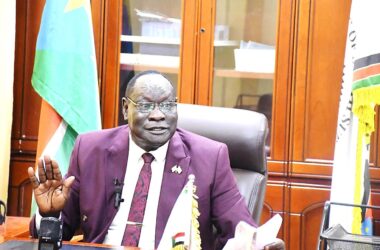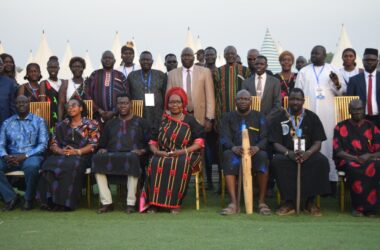By Kei Emmanuel Duku
United Nations Commission on Human Rights in South Sudan expressed deep concern over exacerbating suffering of ordinary citizens due to widespread corruption and mismanagement of public funds.
The commission revealed in a report that South Sudan generated $3.5 billion in non-oil revenue between September 2022 and August 2024.
Commissioner Carlos Castresana Fernandez said that this substantial sum has been diverted for personal use by senior officials, leaving civil servants unpaid for months and crippling essential services.
“Where has this money gone?” Castresana questioned during a press briefing in the UN compound, Juba, lamenting that “not to schools, hospitals, the revitalized peace agreement, nor building a strong justice system.”
The commission highlighted that, alongside rampant corruption, the year-long shutdown of a major oil pipeline, high inflation, and reduced humanitarian aid have further worsened the country’s economic woes.
Despite the pipeline’s partial closure, revenue continues to flow from the operational second pipeline and the non-oil sector, yet these funds are not reaching the national treasury.
Though Castresana did not name individuals, he noted that some implicated officials remain in senior government positions, with others promoted. He alleged that these officials use private companies to facilitate corruption and secure government contracts without due process.
The commission emphasized that this corrupt tendency undermines service delivery, citing the unfunded judiciary in Warrap State, where one judge serves six counties. He stressed the need for accountability and good governance, warning that South Sudan cannot perpetually rely on foreign aid amidst increasing global humanitarian demands.
Commissioner, Barney Afako stated that since the commission’s last report, there has been minimal progress on accountability. He expressed alarm at the government’s failure to invest national wealth in institution-building, resulting in underfunding of critical agencies vital for implementing the peace agreement.
Meanwhile, Commissioner, Head Yasmin Sooka warned that corruption has shifted the burden of service delivery to humanitarian organizations, a situation set to worsen with US aid cuts. She reported that some government agencies receive less than 1% of the national budget, while security dominates allocations.
“Security sits right at the top of the pile,” Sooka said. “Development programs and social services are not prioritized, yet it is reflected in the budgets allocated. People cannot afford to have two or even a single meal (s).” She also noted that the recent US executive orders will deeply impact South Sudan government’s ability to function, as humanitarian organizations are already strained.



